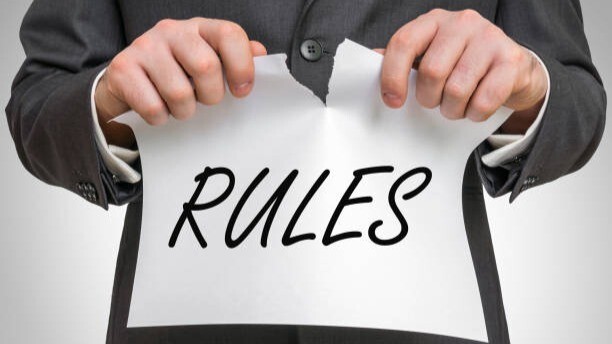Tom Matthews
Founders are often viewed as visionaries, innovators, and risk-takers. They challenge the status quo, create new industries, and transform the world with their bold ideas. However, there is an unconventional comparison that provides a unique perspective on what drives them, which was summed up in the following quote from Yvon Chouinard (the founder of Patagonia) in his book: Let My People Go Surfing:
“If you want to understand the entrepreneur, study the juvenile delinquent.”
At first glance, comparing founders to juvenile delinquents may seem odd or even inappropriate. After all, founders are typically celebrated for their achievements, while juvenile delinquents are often stigmatised for their rebellious behaviour. But look deeper, and you’ll find some intriguing similarities: both groups are characterised by a defiance of rules, a desire for autonomy, and a willingness to take risks.
1. Rule-breaking as a path to innovation
Juvenile delinquents are often known for breaking the rules, whether that means skipping school, staying out past curfew, etc. These behaviours reflect a mindset that questions the boundaries set by society. Similarly, founders are rule-breakers in their own right. They challenge established norms, question outdated business models, and often go against conventional wisdom. For instance, Uber disrupted the taxi industry by defying local transportation regulations, and Airbnb challenged the hospitality sector by circumventing traditional lodging rules.
Founders see rules not as immutable laws but as obstacles that can be bent or even broken in the pursuit of a greater vision. They understand that to create something truly innovative, you often have to step outside the established framework.
2. A deep desire for autonomy
Both founders and juvenile delinquents share a strong desire for independence. Juvenile delinquents often rebel against authority figures—parents, teachers, or societal norms—in an effort to assert their independence and control over their lives. Founders, too, are driven by a desire for autonomy. They want to build something of their own, be their own boss, master of their own destiny, and carve their own path. This desire for independence is a powerful motivator that pushes them to take risks that others might shy away from.
A study by the University of Pennsylvania’s Wharton School found that the desire for autonomy is one of the top reasons people choose to become entrepreneurs. They are willing to forgo the security of a stable pay cheque, benefits, and the safety net of a traditional job to achieve a sense of freedom and self-determination.
3. Risk-taking: the common thread
Perhaps the most significant similarity between founders and juvenile delinquents is their propensity for risk-taking. Juvenile delinquents are often risk-takers by nature. They may engage in behaviours that are reckless or dangerous, driven by a sense of adventure or a desire to challenge authority. While the risks taken by juvenile delinquents often have negative consequences, the underlying psychology is revealing: they are not afraid to step into the unknown.
Founders, too, are risk-takers. They invest time, money, and effort into ventures that may or may not succeed. The entrepreneurial journey is fraught with uncertainty—only about 20% of start-ups make it past their first year, and the odds only get steeper as time goes on. Yet, founders are willing to take these risks, driven by the belief that their idea, product, or service will succeed despite the odds.
Research shows that many successful founders share traits with those who are comfortable with risk-taking and ambiguity. They are resilient in the face of failure, seeing setbacks as learning opportunities rather than reasons to give up.
4. Resilience in the face of failure
Both groups—founders and juvenile delinquents—often face failure early and frequently. For juvenile delinquents, this might come in the form of detention, probation, or societal disapproval. For founders, failure can come as a business that fails, a product that doesn’t resonate with the market, or an idea that never takes off. However, it’s not the failure itself that defines them but their response to it.
Founders, like juvenile delinquents who turn their lives around, often display remarkable resilience. They are not discouraged by failure but rather see it as part of the process. In fact, many successful founders have failed multiple times before achieving success. This resilience—the ability to bounce back, learn from mistakes, and keep pushing forward—is a key attribute that drives both groups to keep striving for their goals.
5. Creative problem solvers
Juvenile delinquents are often incredibly creative in finding ways to circumvent rules or achieve their objectives, even if those objectives are misguided. This creativity is born from a necessity to adapt to challenging environments. Similarly, founders are adept problem solvers. They look at the world through a lens of “What if?” and “Why not?”, constantly seeking new ways to address existing problems. They turn obstacles into opportunities, leveraging creativity to innovate and disrupt.
Steve Jobs, one of the most iconic founders of our time, was known for his rebellious spirit and non-conformity. He often clashed with authority figures and was known for his willingness to break the rules. His ability to think differently and challenge the status quo is what led to some of the most ground-breaking innovations in technology.
Conclusion: harnessing the rebel spirit for good
The comparison between founders and juvenile delinquents is not meant to glorify rule-breaking for its own sake or to downplay the challenges that come with delinquent behaviour. Rather, it is an exploration of the underlying psychological traits that drive both groups. Founders who harness these traits—creativity, risk-taking, resilience, and a desire for autonomy—channel their rebellious spirit into positive, world-changing outcomes.
By understanding these traits and recognising the potential in unconventional thinkers, we can foster a culture that nurtures the entrepreneurial spirit. After all, today’s rule-breaker could be tomorrow’s innovator. The key is to channel that rebellious energy into something that benefits society—just as successful founders have done throughout history.



